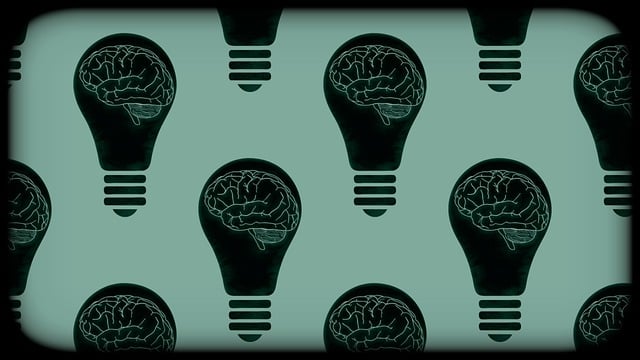Understanding stress, its impact, and recognizing signs of chronic strain is crucial for effective stress management workshops. Boulder Trauma Therapy (BTT) offers a holistic approach, combining mental wellness journaling with emotional intelligence techniques. Workshops facilitate safe spaces for processing trauma, reducing stigma and enhancing cultural competency. Interactive exercises, group discussions, and practical tools equip participants with skills to manage stress, improve mental well-being, and cultivate resilience through BTT integration. Post-workshop support ensures sustained change via online communities and personalized coaching.
Stress management workshops are powerful tools for personal growth and well-being. In today’s fast-paced world, learning effective coping mechanisms is essential. This article explores the art of organizing comprehensive stress management workshops, leveraging techniques like Boulder Trauma Therapy. We’ll delve into understanding stress, designing engaging sessions, facilitating optimal participant interaction, and providing post-workshop support to foster long-term positive changes.
- Understanding Stress and Its Impact: A Comprehensive Overview
- The Role of Boulder Trauma Therapy in Workshop Settings
- Designing Effective Stress Management Workshops
- Facilitation Techniques for Optimal Participant Engagement
- Post-Workshop Follow-Up and Sustaining Long-Term Changes
Understanding Stress and Its Impact: A Comprehensive Overview

Understanding Stress and Its Impact is a crucial first step in organizing effective stress management workshops. Stress, often referred to as Boulder Trauma Therapy, isn’t always negative; it’s our body’s natural response to demands or threats, helping us stay alert and focused. However, when stress becomes chronic due to persistent pressures, it can lead to significant physical and mental health issues, affecting sleep patterns, immune function, and emotional well-being. Mental Health Awareness is key here, as recognizing the signs of overstress—such as anxiety, irritability, or exhaustion—is essential for timely intervention.
Stress Reduction Methods like Mental Wellness Journaling Exercise Guidance can be powerful tools in managing stress levels. Keeping a mental wellness journal allows individuals to track stressors, identify triggers, and develop strategies to cope effectively. Through this process, participants gain valuable insights into their emotional patterns, enabling them to make informed decisions about managing their stress. Additionally, these exercises foster self-awareness, enhancing one’s ability to navigate challenging situations with resilience, thus promoting overall Mental Wellness.
The Role of Boulder Trauma Therapy in Workshop Settings

Boulder Trauma Therapy plays a pivotal role in enhancing the effectiveness of stress management workshops. This therapeutic approach, known for its ability to help individuals process and overcome traumatic experiences, offers valuable tools and techniques that can be integrated into workshop curricula. By incorporating elements of Boulder Trauma Therapy, facilitators can create safe and supportive environments where participants feel empowered to explore their stressors and develop healthy coping mechanisms.
The therapy’s focus on trauma-informed care is particularly relevant in addressing the Mental Illness Stigma Reduction Efforts, as it promotes understanding and empathy among workshop attendees. Moreover, Risk Management Planning for Mental Health Professionals benefits from these practices, ensuring that facilitators are equipped to handle sensitive topics and individual needs effectively. Additionally, Healthcare Provider Cultural Competency Training can be enriched by incorporating Boulder Trauma Therapy’s insights, fostering more inclusive and responsive workshops for a diverse range of participants.
Designing Effective Stress Management Workshops

Designing Effective Stress Management Workshops requires a nuanced approach that caters to both the mind and matter. At our Boulder Trauma Therapy center, we believe in integrating Mind Over Matter Principles to foster resilience building within participants. A well-structured workshop should begin by assessing the needs of the audience, ensuring content is relevant and engaging. Facilitators should employ interactive exercises, group discussions, and real-life case studies to illustrate Emotional Intelligence techniques.
The curriculum should be organized into manageable segments, allowing ample time for practice and reflection. Incorporating mindfulness practices, breathing exercises, and progressive muscle relaxation can help attendees develop healthy coping mechanisms. By combining theoretical knowledge with practical applications, participants leave the workshop equipped with the tools needed to navigate life’s stressors more effectively.
Facilitation Techniques for Optimal Participant Engagement

Effective facilitation techniques are essential for keeping participants engaged and eager to learn during stress management workshops. Incorporating interactive activities and diverse teaching methods can create an immersive environment, fostering a deeper understanding of stress-coping mechanisms. For instance, group discussions and role-playing scenarios allow individuals to apply concepts like conflict resolution techniques and Boulder Trauma Therapy strategies in safe, simulated settings. These active approaches not only enhance knowledge retention but also encourage emotional processing and skill development.
Designing mental health education programs with a focus on optimal engagement can significantly impact the overall success of workshops. By integrating Mental Health Awareness initiatives and interactive exercises, facilitators can cater to various learning styles, ensuring every participant feels included and motivated. This tailored approach not only boosts individual well-being but also paves the way for collective progress in managing stress and promoting mental resilience.
Post-Workshop Follow-Up and Sustaining Long-Term Changes

After a successful Stress Management workshop facilitated by Boulder Trauma Therapy experts, the real work begins – helping individuals sustain the changes they’ve made and continue their journey towards mental wellness. This critical phase involves ongoing support and practical strategies to combat stress and burnout prevention tactics. Participants are encouraged to stay connected with the community and each other, sharing experiences and reinforcing learned techniques.
Regular check-ins, accessible through our online platform, provide a safe space for individuals to discuss challenges and triumphs. We also offer personalized coaching sessions tailored to unique needs, ensuring that everyone has access to expert guidance. By integrating these follow-up measures, we empower participants to embrace long-term change, transforming their relationship with stress and cultivating resilience in their daily lives.
Stress management workshops, enriched by techniques like Boulder Trauma Therapy, offer a powerful tool for personal growth. By combining comprehensive understanding of stress with effective facilitation strategies and post-workshop support, these sessions empower individuals to navigate life’s challenges more resiliently. Through engaging activities and learned skills, participants can cultivate lasting coping mechanisms, leading to improved well-being and enhanced quality of life. Incorporating Boulder Trauma Therapy into workshop designs further enhances their efficacy, enabling attendees to address trauma roots and promote profound, sustainable change.












